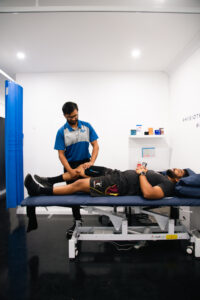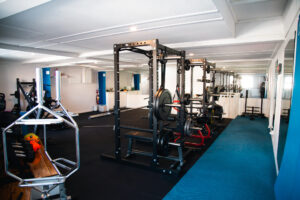Conservative Rehab
Non- Operative Treatment of an ACL Injury
We’ve delved into the signs and symptoms of an ACL rupture and discussed post-surgery protocols. However, there’s an alternative path you might not be aware of—returning to sport without ACL surgery. Many elite athletes have successfully recovered from such injuries, emphasizing the effectiveness of non-operative treatment.
“But how does ACL non-operative treatment work?”
In essence, strengthening key muscle groups—quads, glutes, hamstrings, and calves—can compensate for the absence of an ACL, providing ample stability during pivoting sports. Understanding the ACL’s role—preventing tibia movement, stabilizing the knee during pivoting, and being most taut when the knee is fully straight—guides the approach.
Research-backed insights:
Successful return without surgery: Studies reveal that individuals can successfully return from an ACL rupture without surgery. A 2013 study followed 121 young adults, with 30 not requiring surgery even five years later, displaying similar function and minimal arthritic changes.
No guarantee with ACL reconstruction: In 2014, a study highlighted that only 63% of non-elite athletes returned to their pre-injury competition level, challenging the assumption that ACL reconstruction ensures a return to the same level of sports participation.

Osteoarthritis risk: A 2019 study emphasized that the choice between operative and non-operative treatment does not alter the risk of osteoarthritis. The risk is inherently increased by an ACL rupture, with surgery not affecting it.
Factors to consider for non-operative ACL treatment:
Several factors play a role in deciding whether non-operative ACL treatment is suitable for you:
- – Age
- – Goals and desired sport
- – Level of sport involvement
- – Knee stability
- – Other associated injuries (meniscus, MCL, PCL)
- – Previous injury history
- – Commitment to rehabilitation
- – Financial considerations
Conclusion:
While non-operative treatment may sound appealing, it’s crucial to consult with specialists and surgeons who can provide comprehensive guidance tailored to your unique circumstances. The decision involves weighing multiple factors, and collaboration between physiotherapy and surgical expertise can lead to the best possible outcome for your ACL recovery journey in Sydney.
